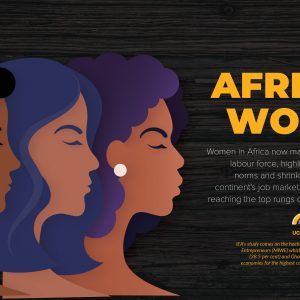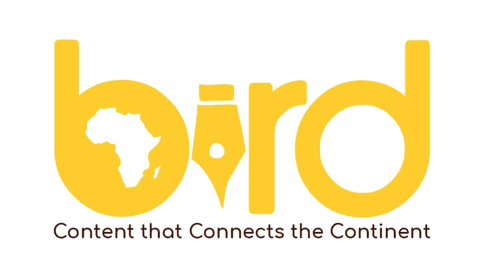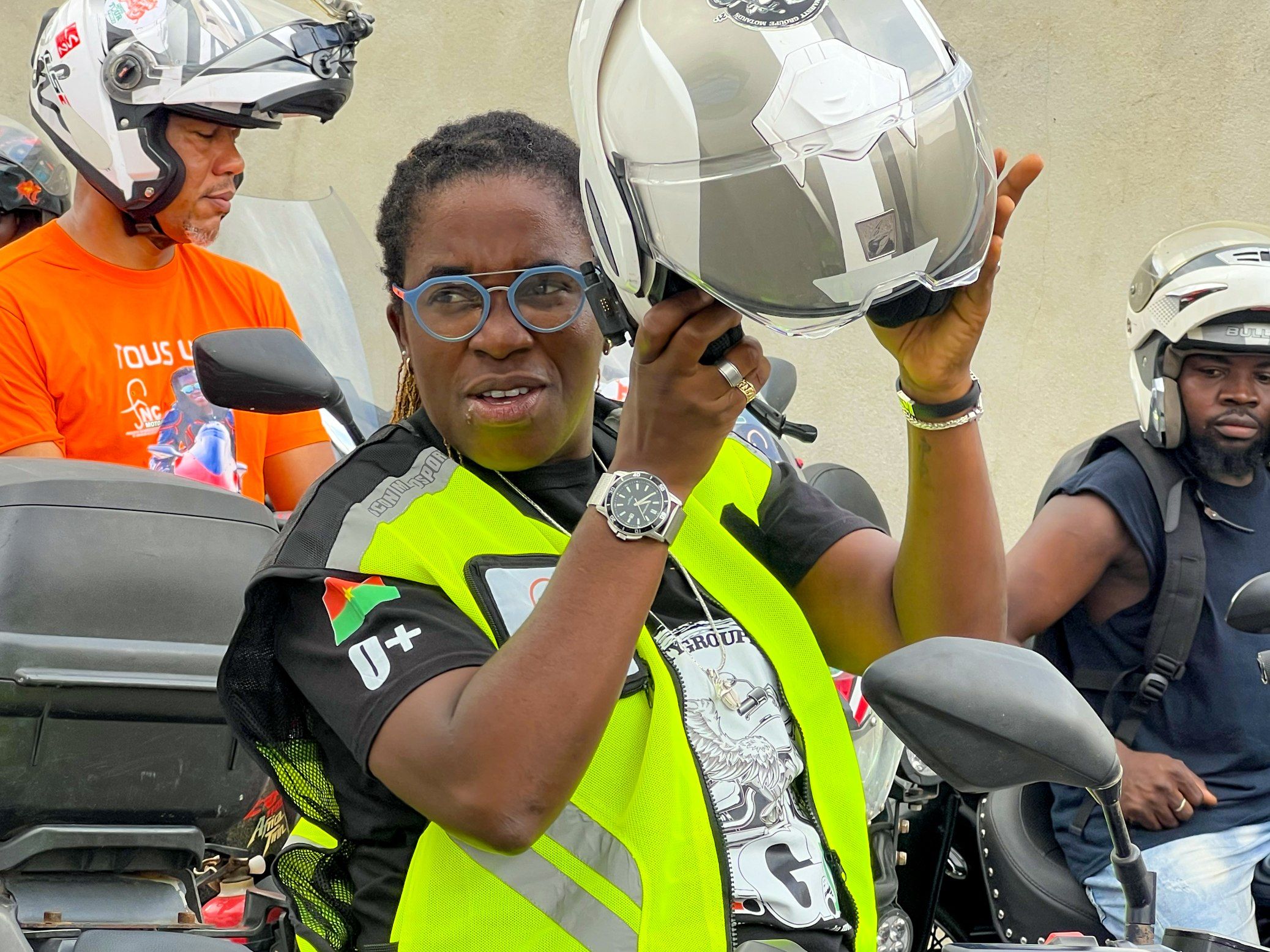Women in Africa now make up almost half of its labour force, highlighting changing social norms and shrinking gender gaps in the continent's job market. More women are also reaching the top rungs of the corporate ladder.
By Seth Onyango, bird story agency
The latest figures from the International Energy Agency (IEA) show that women constitute 43 per cent of economy‐wide employment across Africa today, a rate of participation that is on a par with that in advanced economies.
However, female employment varies widely across economic sectors with links to energy, from 44 per cent in manufacturing to only 5 per cent in construction, based on 2019 data.
"Female employment averages only 16 per cent in mining and 22 per cent in utilities," the IEA stated in its Africa Energy Outlook 2022 report published in June. "Female participation also varies greatly across African countries according to cultural norms, averaging 21 per cent in North Africa compared with 47 per cent in sub‐Saharan Africa and 44 per cent in South Africa."
IEA's study comes on the heels of the 2020 MasterCard Index of Women Entrepreneurs (MIWE) which ranks Uganda (39.6 per cent), Botswana (38.5 per cent) and Ghana (36.5 per cent) as the world’s top three economies for the highest concentration of women business owners.
Where Africa stands
In large swathes of Africa, the regional share of female workers exceeds the level in the advanced economies as well as the world average in utilities, mining and manufacturing. But while female employment levels in Africa are on a par with that of advanced economies, the latter earn comparatively higher, largely because of the cost of living.
Previous studies, however, have shown that in general, people with high-paying jobs in Africa (5,000 US dollars and above a month) have significantly higher disposable income than their European or American counterparts with the same payslip.
IEA further notes that, despite high rates of female participation in some African countries, women are more likely than men to work in the informal sector.
"Jobs (in the informal sector) are often less stable and pay lower wages, due to their more limited access to education, household and childcare responsibilities, and worries about safety when commuting to work," reads the report in part.
A 2019 McKinsey report on gender equality states that Africa's economy could grow 10 per cent just by taking women more seriously.
Women in corporate leadership
More women in Africa are also climbing to the apex of corporate leadership, as seen in countries like Nigeria, where there are several female bank chief executives. Seven women now head some of the country's top banks, including Guaranty Trust (GT) Bank (Miriam Olusanya) and First City Monument Bank (Yemisi Edun), Fidelity Bank Plc.
Other female chief executives at commercial banks in Nigeria are Halima Buba (SunTrust Bank), Ireti Samuel-Ogbu (Citibank Nigeria), Oluwatomi Somefun (Unity Bank), Bukola Smith (FSDH Merchant Bank Limited), and Kafilat Araoye (Lotus Bank).
Stock exchanges in South Africa, Nigeria, Kenya and Egypt have renewed their commitment to closing the gender parity gaps by bringing more women on board in leadership positions – especially as chief executives and chairs in some of the continent's largest private firms. Africa's largest stock exchange – the Johannesburg Stock Exchange (JSE) – is run by a woman, Leila Fourie.
According to the Brookings Institute, although women in Africa remain underrepresented on corporate boards, that number is not far off from the global average. Its figures show in 2018, sub-Saharan African women held 24.3 per cent of board seats of African companies (and 24.5 per cent of board chairs), compared to 27 per cent on corporate boards worldwide.
IEA argues that overcoming obstacles to female employment in Africa’s energy sector would bring multiple benefits.
Gender stereotypes and bias
The IEA report notes that women attempting to enter the workforce, including the energy sector, face numerous barriers such as gender stereotypes and bias, and lack of training, mentorship and networking.
"In Ghana, for example, the number of women graduating with science, technology, engineering and mathematics (STEM) degrees is increasing, but not female employment in the electricity sector," it states in part. "As a result, women with STEM degrees and technical training certificates often end up working in unrelated fields, underutilising their skills."
On entrepreneurship, Nigeria, Malawi, South Africa, Angola, Algeria, Tunisia, Ethiopia, and Egypt have also featured in the top 100 of the MasterCard index. The data behind the study signals that women’s entrepreneurship is outpacing the overall workforce in Africa, with that growth curve expected to surge.
The Index’s benchmark indicator is calculated as a percentage of total business owners. Apart from Botswana, African countries captured in the report showed improved MIWE scores since 2019.
“South Africa displayed the biggest growth with a 7 per cent increase. Botswana, however, has also grown the number of women entrepreneurs since last year (36 per cent in 2019 to 38.5 per cent in 2020), earning the country the second spot globally and displacing Ghana who now comes in third,” read the report in part.
However, many women-owned businesses were not captured in the data years earlier.
According to MasterCard, the results also point to a strong representation of women business owners in Malawi, Angola, and Nigeria, despite the economic and social challenges facing their entrepreneurial ecosystems.
It is perhaps no surprise then that Africa's entrepreneurs are also the most confident, in the world, in their ability and skills to start a business, according to a Global Entrepreneurship Monitor (GEM) report.
People in Malawi, for example, feel twice as self-assured about launching a startup as those in the UK. The high scores are driven by "a low fear of business failure, an absence of alternative income sources, and an eager commitment to contribute to their communities."
bird story agency





